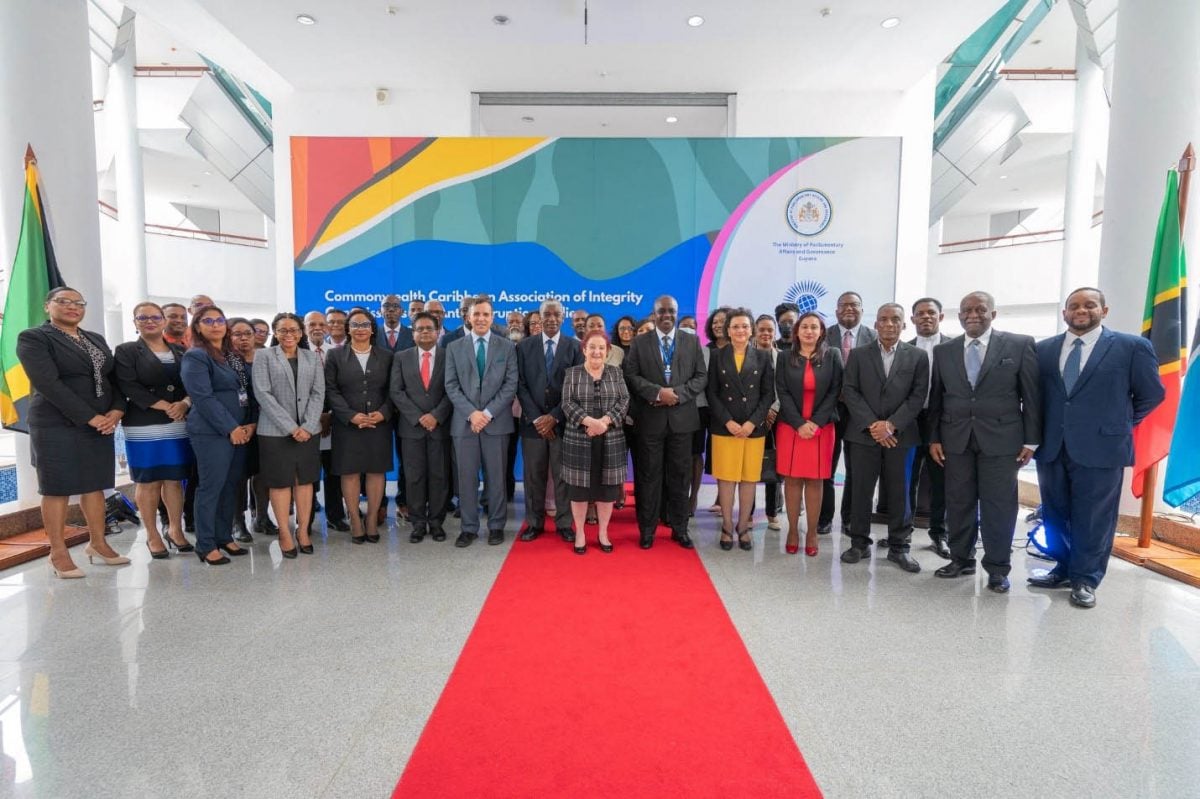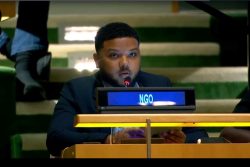Caribbean countries must push back against the Transparency International (TI) Corruption Perceptions Index (CPI), which has painted the region as a “haven for corruption.”
So said Minister of Parliamentary Affairs and Governance, Gail Teixeira, who stated on Monday that the Guyana government does not recognize the ranking from the German-based watchdog organization and urged other Caribbean countries to reject the rankings and its negative portrayal of the region.
“The Caribbean region keeps getting notoriety in the international media for [being] havens of corruption and the number of articles are showing that we have a massive corruption in the Caribbean islands, we have to be offended by that as Caribbean Community (CARICOM) countries,” she declared.
TI is recognised globally as the best barometer on corruption.
Teixeira was at the time delivering the keynote address at the opening of the 9th Annual Conference of the Commonwealth Caribbean Association of Integrity Commissions and Anti-Corruption Bodies (CCAICACB) at the Arthur Chung Conference Centre, Liliendaal. In her remarks, Teixeira described the rankings as based on the perception and assessment of two to three persons who were not selected by the electorate.
“I, as a Guyanese and Member of the Government, we do not accept TI’s assessment of us. It is non-empirical, nonscientific and therefore we do not feel it is valued that and an organization can have two or three unnamed persons in a country evaluate your country and put your country on a scale globally. That gives two or three people an erroneous amount of power that they weren’t given by the electorate…”, Teixeira said.
While there is a local affiliate of TI here it is not responsible for the evaluation that feeds into the TI ranking.
Teixeira sought to question the methodology used in TIs ranking system as the system has, in the past, revealed that most corrupt countries are south of the equator while the least are north.
“For me this reflects prejudices and biases against… the developing world,” she said as she challenged her Caribbean counterparts to utilize the conference to remedy the issues that they are facing. The Minister said institutions must be frontal with what they are doing to counter corruption challenges and explain to the electorate what are the measures the country is using and to get the people on board to support such efforts. The fight against corruption and the establishment of mature democracies requires not only amendments to legislation and policy frameworks but also the active participation of people at the grassroots level.
Many anti-corruption efforts overlook the importance of involving ordinary citizens as the “eyes and ears” of their communities, she stated.
“We have to give credence to these persons who do recognize the value of money… how do we involve people to be the ‘eyes and ears’ of the people, not only in government but the private sector, to ensure people are getting value for their money, and taxpayers’ money are being utilised for their benefit and that they are not being siphoned off and making someone else wealthy?” the Minister questioned. She pointed out that they must explore ways in which persons can be encouraged to be part of anti-corruption initiatives.
Citizen reporters
The idea of anti-corruption citizen reporters was floated as a means of combating some of the challenges. Such an initiative, she believes, holds value in keeping persons accountable.
“We have to look at what kind of interactions, interventions [and] innovations to reward and to recognise community reporters. I think we need citizen anti-corruption reporters to actually give that credibility and importance,” Teixeira stressed. She also asserted that there must be a focus on capacity building and building trust with the public as they fight corruption. In her view, strengthened institutions and respect for honest employees of the private and public sector will provide less opportunities for corruption.
“…Strong democratic institutions or an efficient professional mandate in accordance with the constitution creates less opportunities for corruption, including equitable distribution of goods and service… without [persons having the need to offer] something under the table…” she added. According to her, strengthened institutions and laws for accountability will not just fight corruption but build resilient democratic nations to address emerging threats.
Meanwhile, Minister with Responsibility for Finance, Dr. Ashni Singh in his feature presentation, noted that by ensuring every citizen experiences transparency and efficiency, strides can be made to combat corruption.
He announced that a team is working on mapping the processes associated with citizen interaction with the state and identifying opportunities for making these processes efficient.
“This is not just, I emphasise, not just a question of reducing or removing red tape… It goes to the core of good governance because it eliminates citizen frustration and therefore eliminates opportunities for corrupt behaviour,” the Minister said. He had earlier stated that government is fully aware of extreme inefficiencies in the system. The experience of modernity must not be enjoyed only through physical assets but they must be enjoyed through every single citizens’ experience, he stated.
“Whether we’re going into a state-owned hospital treatment, whether we are registering our child to attend a school, whether we are applying for a passport or a birth certificate, whether we are importing an item or you’re attempting to clear all the goods through the customs, whatever our interaction is, with whichever institution, it must be based on transparent, predictable processes that are designed to be efficient and eliminate citizens’ frustration,” the Finance Minister added.








